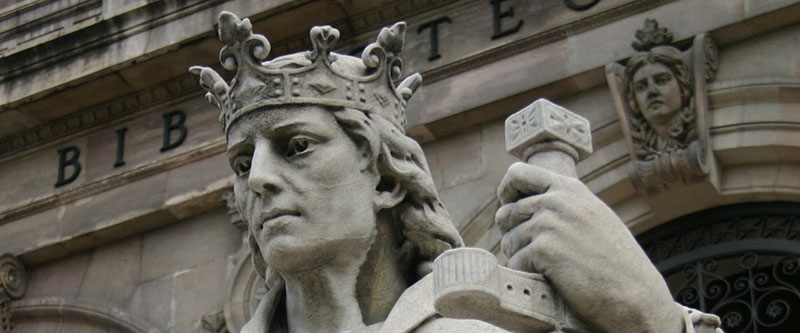“My travail is that both princes and subjects obey God. Think not, Madam, that wrong is done you, when you are willed to be subject to God.”[1]
There is much to consider when it comes to the power and authority of the government. Especially in western nations, there is consternation among Christians over recent mandates and requirements coming from the civil magistrate. As a result, there has been disagreement in churches and denominations about the extent of authority the magistrate may exercise. And then there is John Knox. Last article he is quoted as advocating for disobedience, even violent opposition to a civil magistrate who exceeds his bounds. In the quote above Knox is speaking to his queen, Mary, Queen of Scots. This time he asserts the limits of her power: she also is to be subject to God. Before there is too much excitement (either positive or negative) about these quotes, there are a series of questions that have to be answered. Before the Christian can affirm or deny Knox’s claims, there must be a clear and biblical understanding of the role and function of government. These questions and their answers make up the substance of this series of articles. The first question to be considered is, “What is the source of the civil government’s power?”
Chapter 23 of the Westminster Confession of Faith deals with government and is entitled “Of the Civil Magistrate”. The biblical texts regarding the establishment of the governing authorities cited in this confession are 1 Peter 2:13-14 and Romans 13:1-4. Reserving consideration only for the latter, in the opening verse of Romans 13 Christians are told “there is no authority except from God, and those that exist have been instituted by God.” Christians must allow the significance of those words to sink in. The Bible teaches here that good and bad princes are placed in their positions by God. There is no authority except from God, and those in authority are placed there by Him. Humanly speaking, rulers may assume power in a variety of ways. Monarchies and emperors do so by birth, nations may conquer through war, deceitful men may claim power through intrigue and betrayal, and in democracies governments are chosen through the voting process. But behind all those secondary human causes sits God’s singular and divine providence. God decrees, and then carries it out by governing all His creatures and all their actions (see Westminster Shorter Catechism #11).
God’s will is done in the world, also in times when evil seems to have the upper hand. That was the case in Joseph’s life and he recognized it as such. In Gen 50:20 he tells his brothers: “You meant evil against me, but God meant it for good.” In that moment, Joseph recognizes that things appear differently to man than God. Man only has part of the picture and it can seem like evil will prevail. But God, seeing the entirety of His plan, accomplishes his will through secondary causes. When it comes to the governance of the societies of this world, He uses the civil magistrate. God may work through godly princes, but his plan is also accomplished when the wicked rule. Job understood that all things come from God’s hand: “Shall we receive good from God, and shall we not receive evil?” (Cf. Job 2:10). When Satan entered Judas Iscariot’s heart and convinced him to betray Christ, that evil plan resulted in the final victory over sin and death. Those moments are not accidents which God did not foresee. So God gives authority to all rulers, whether they are good or evil. Recognizing that truth will eliminate the vast majority of calls for civil disobedience.
However, when the Bible says all governing authorities are instituted and appointed by God (Rom. 13:1-2), it is not saying that all authorities behave in a godly manner. It is simply recognizing government receives its status through God’s providence. Their position is God-ordained, regardless of the personal approval of its citizens when it comes to their political decisions or personality when lawfully made. To say all authority is instituted by God is not saying anything about the right direction or proper boundaries to the government’s power. What is the civil magistrate to do? For what purpose to it wield its authority? That is a question for the next article.
[1] John Knox, The History of the Reformation in Scotland (Carlisle, PA: The Banner of Truth Trust, 1982), 279.

